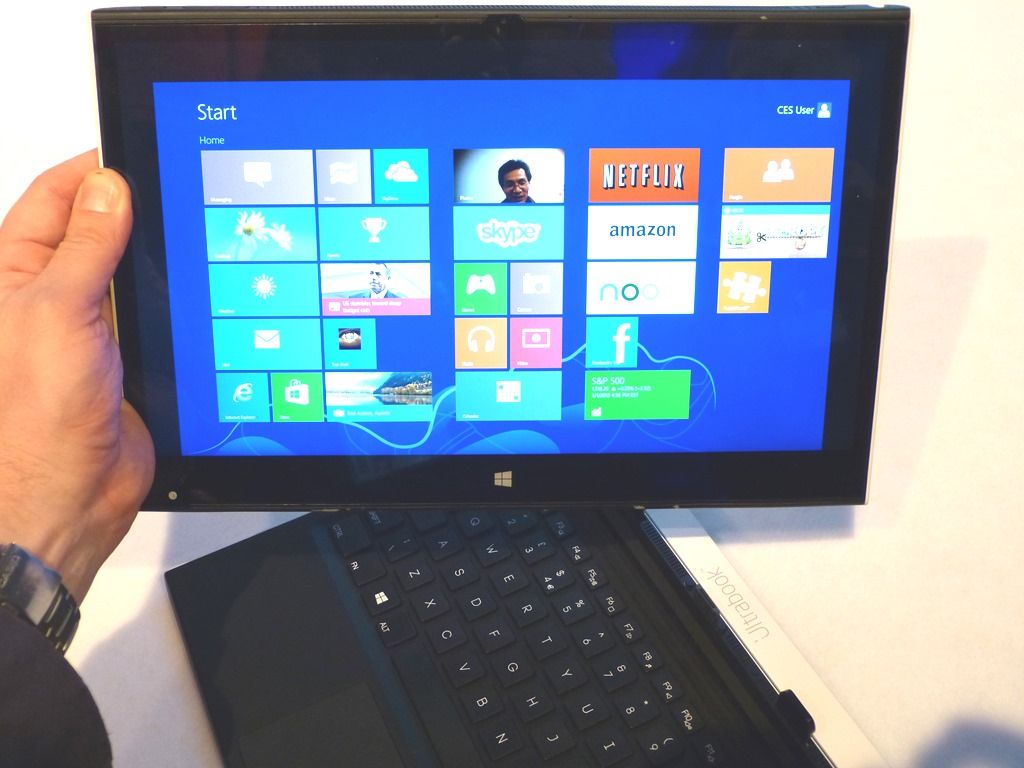
North Cape is the Haswell hybrid Ultrabook reference design that was brought out as the demo at CES in Jan. This evening in Hannover, Intel have allowed us to have a few minutes hands-on with it at CeBIT. Naturally this is a reference design and not a final product but from the few minutes we had we can draw at least a few conclusions. I also had a chance to speak to a senior marketing representative from Intel about Connected Standby.
First, the video.
You hear me talk about the cool body, the light weight and the thinness. There’s a demo of the virtual frame too. We don’t know the TDP of the part inside (it could be a downclocked or cTDP low-power configurationer for example.) There’s an interesting eject button which means it’s probably more than just USB running through the base unit.
In a chat with one of the marketing managers I confirmed that there will be COnnected Standby and non-Connected Standby Ultrabooks on Haswell. The CS Ultrabooks are likely to be the cream of the crop and will be more expensive but will have lower power profiles. Clearly the hybrid designs are the perfect fit for CS-capable Ultrabooks but I’ wouldn’t be surprised to see Samsung have a CS-capable Series 9. Remember, CS is not just about being up-to-date with emails, it means apps can run when the Ultrabook is in your bag, without a fan, on an SSD, for days. It’s the mark of extreme battery life, it’s very exciting technology and likely to be exclusive to Ultrabooks.
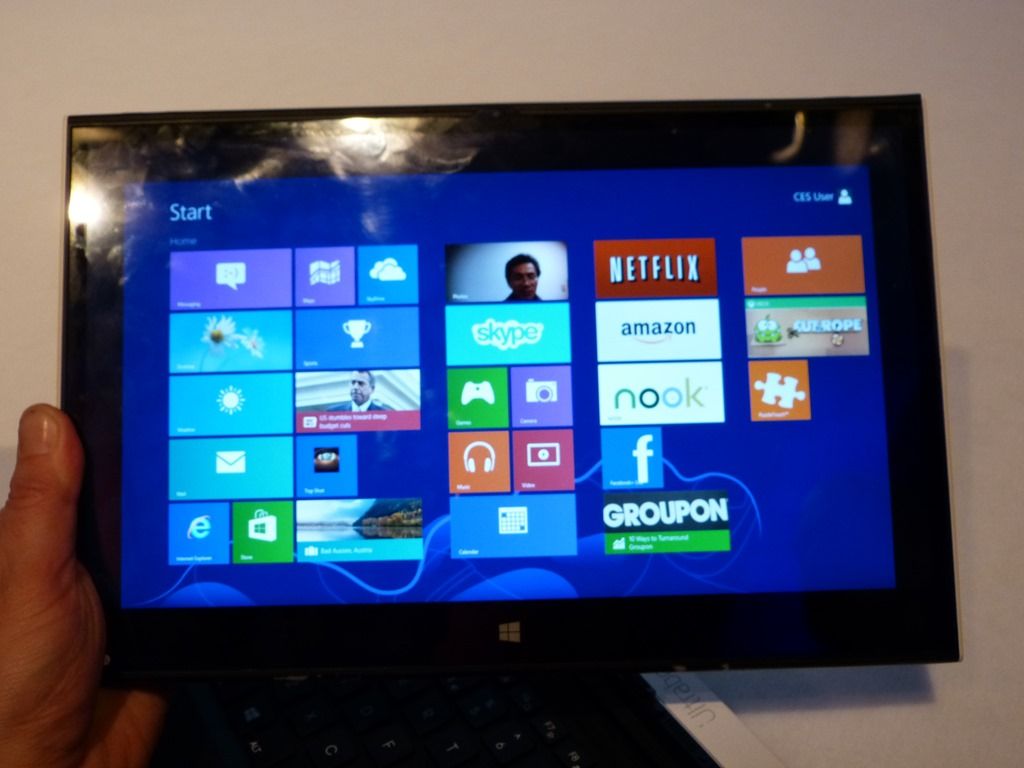
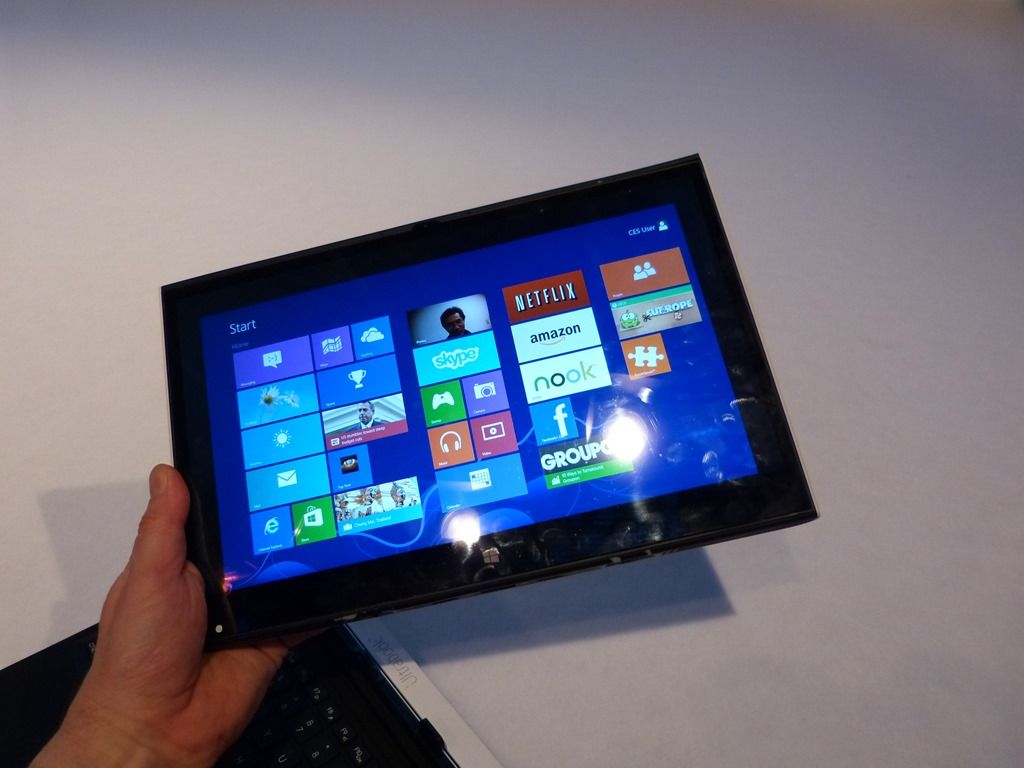
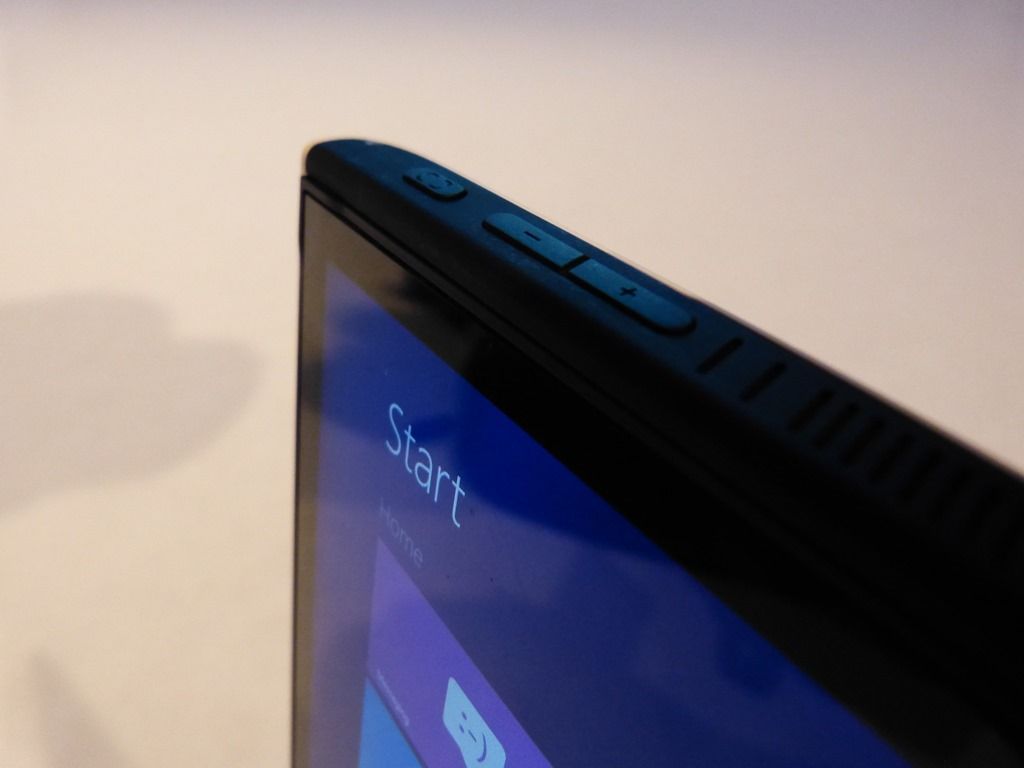
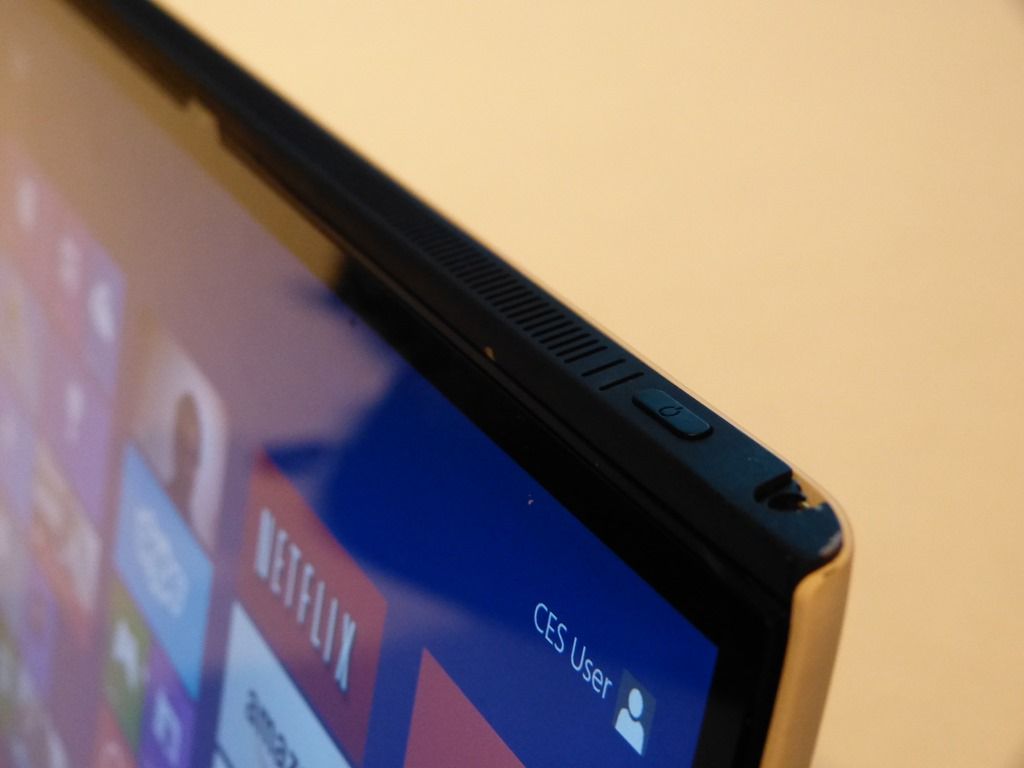
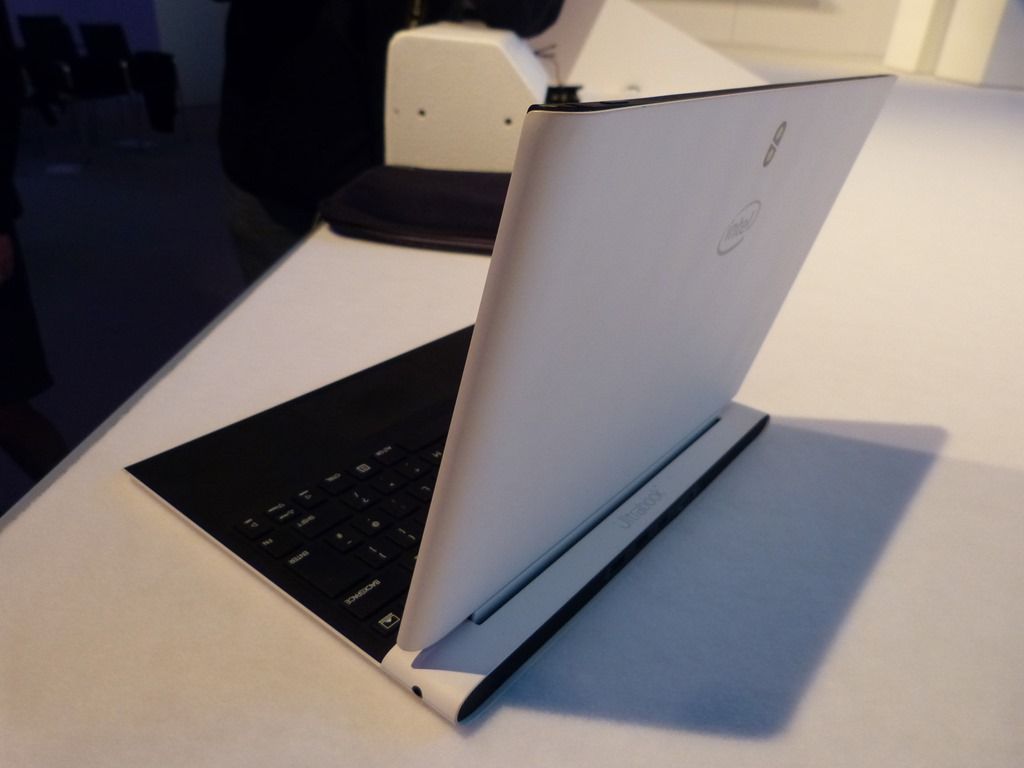
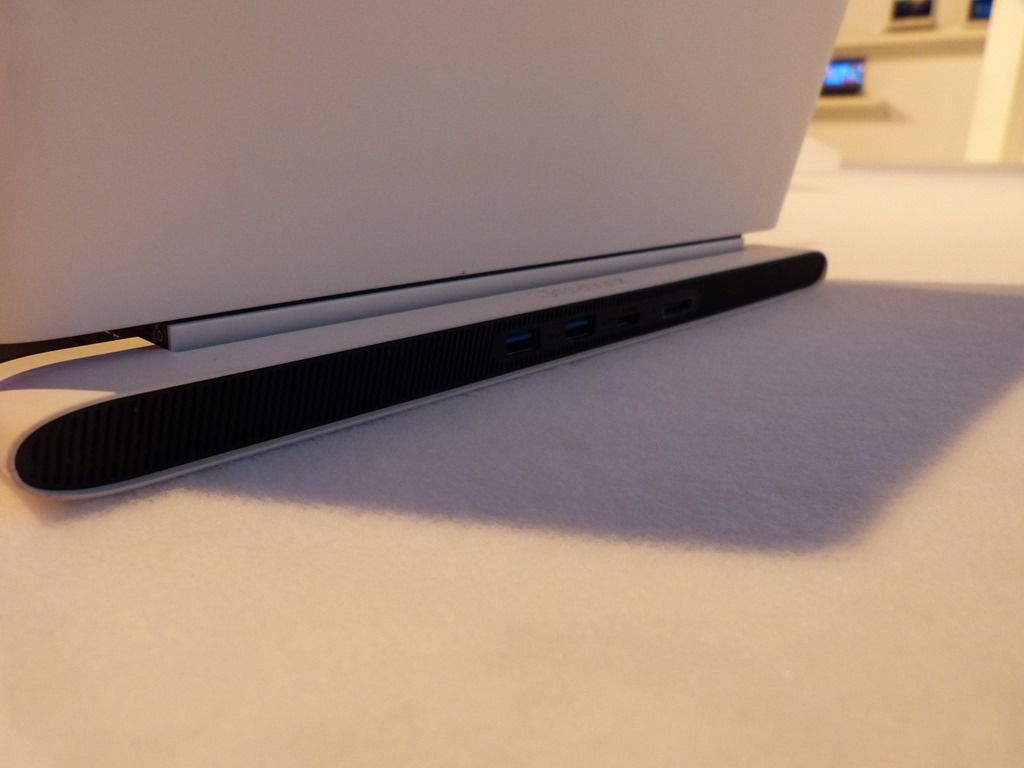
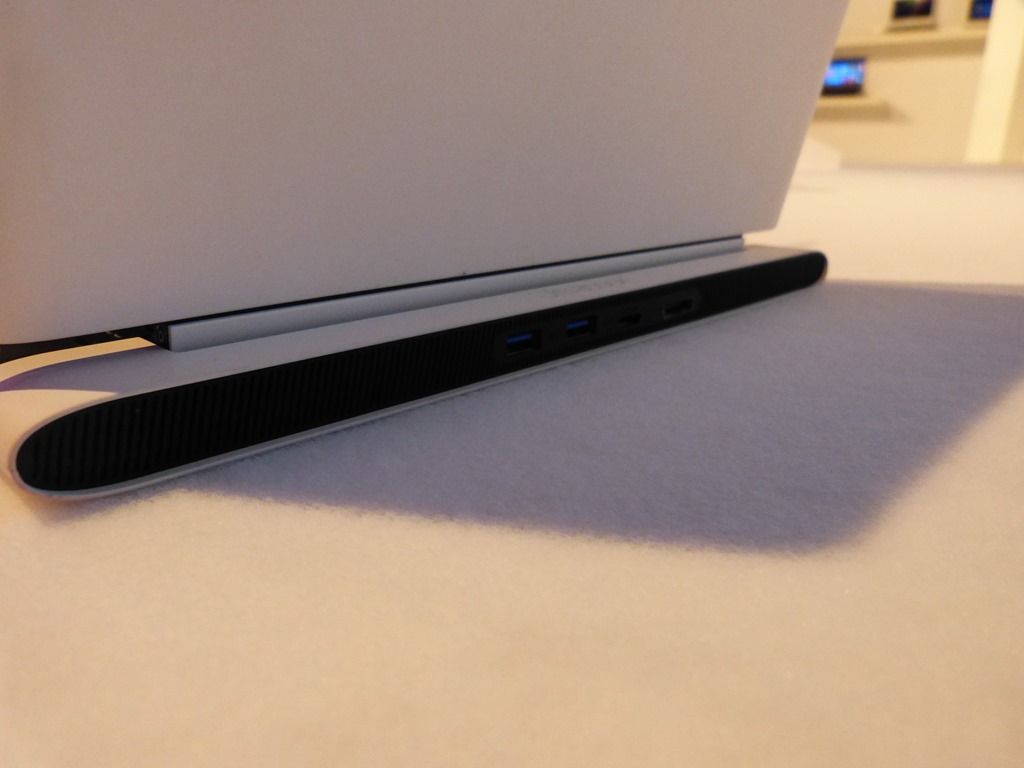
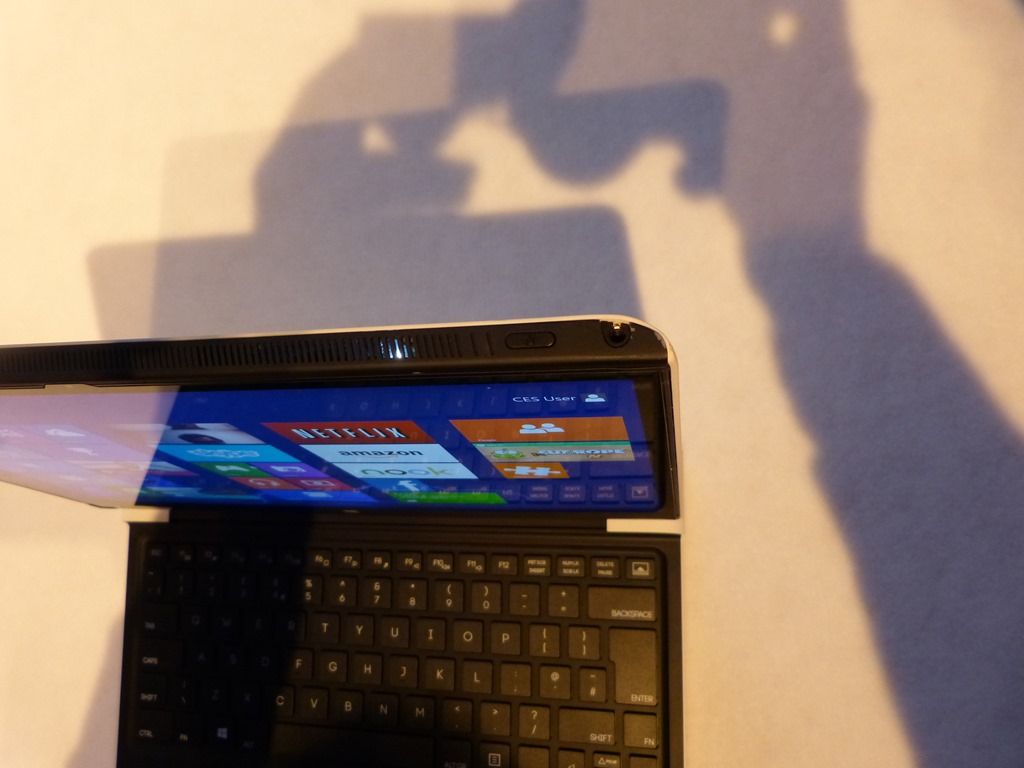
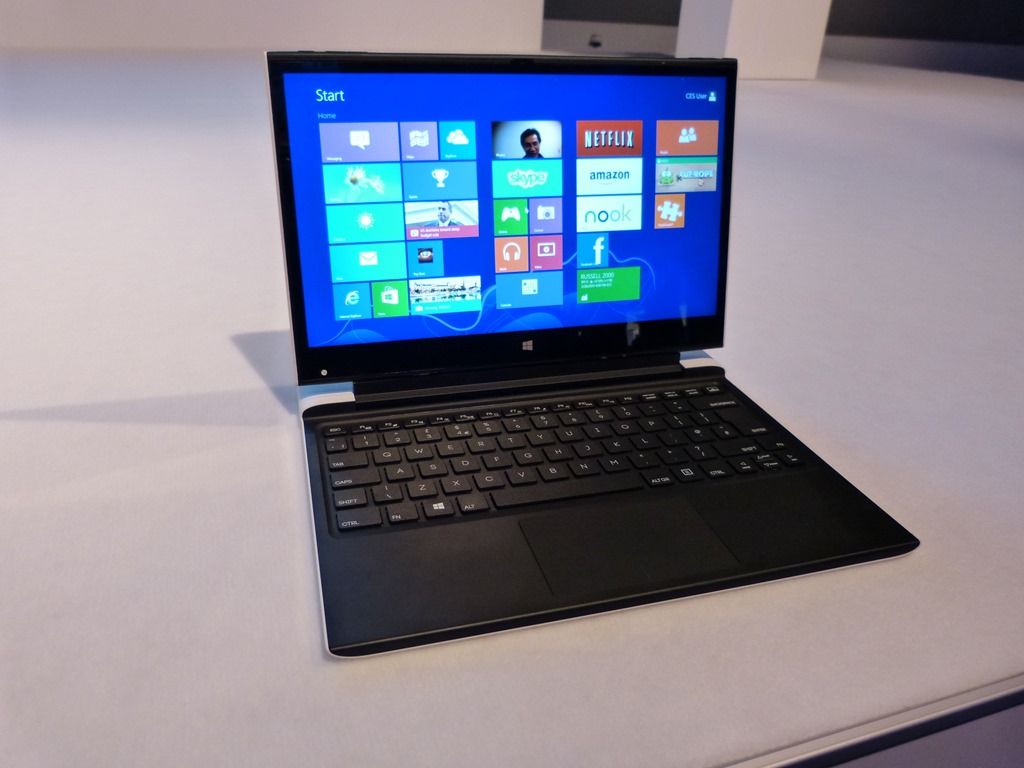
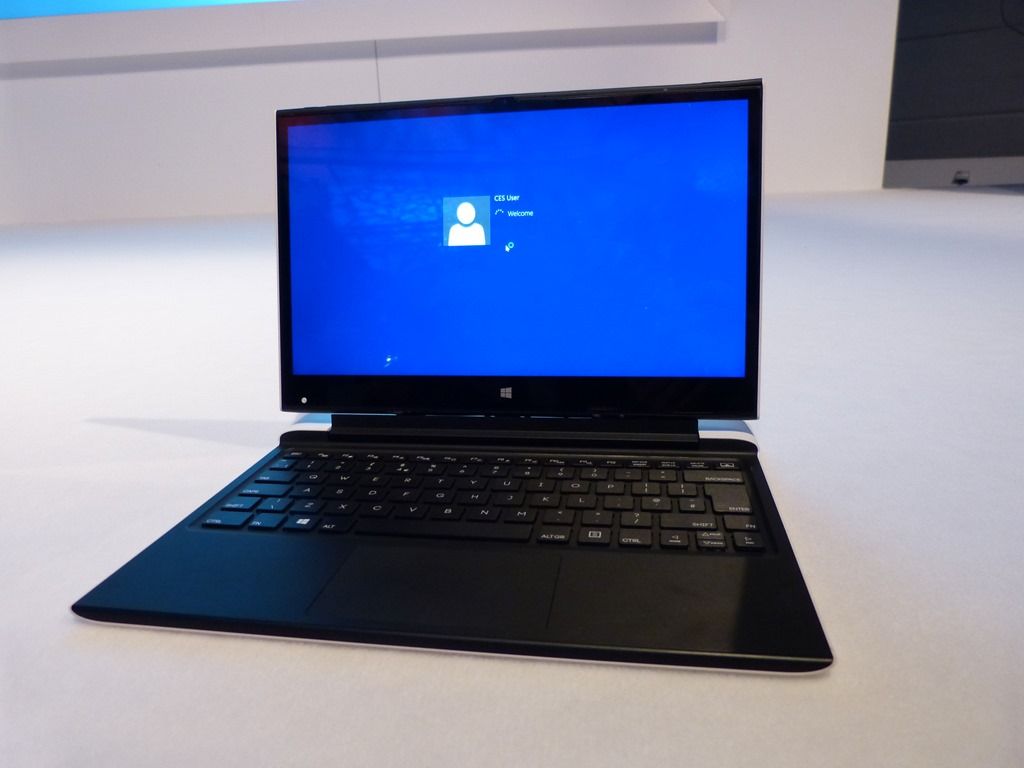
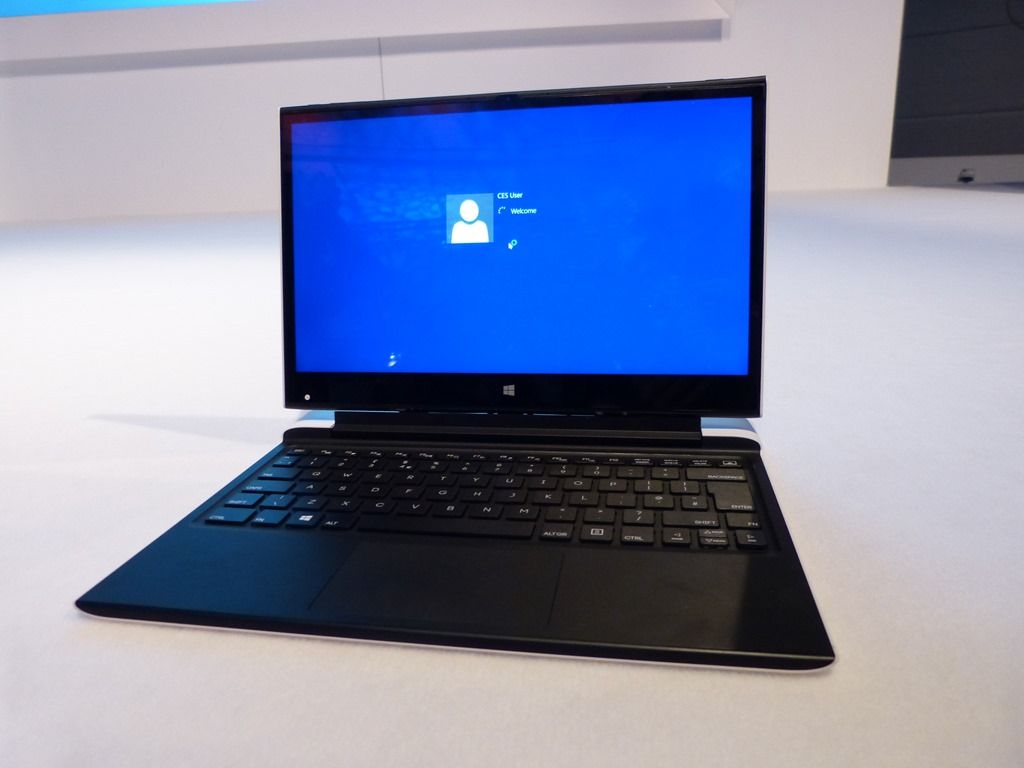
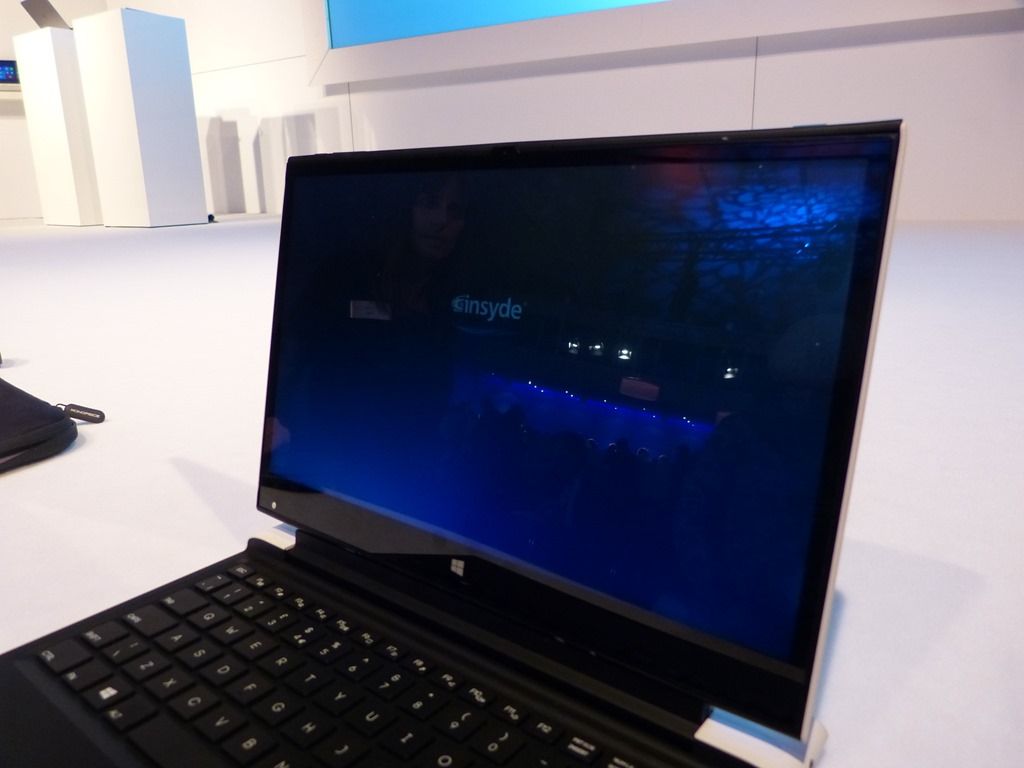
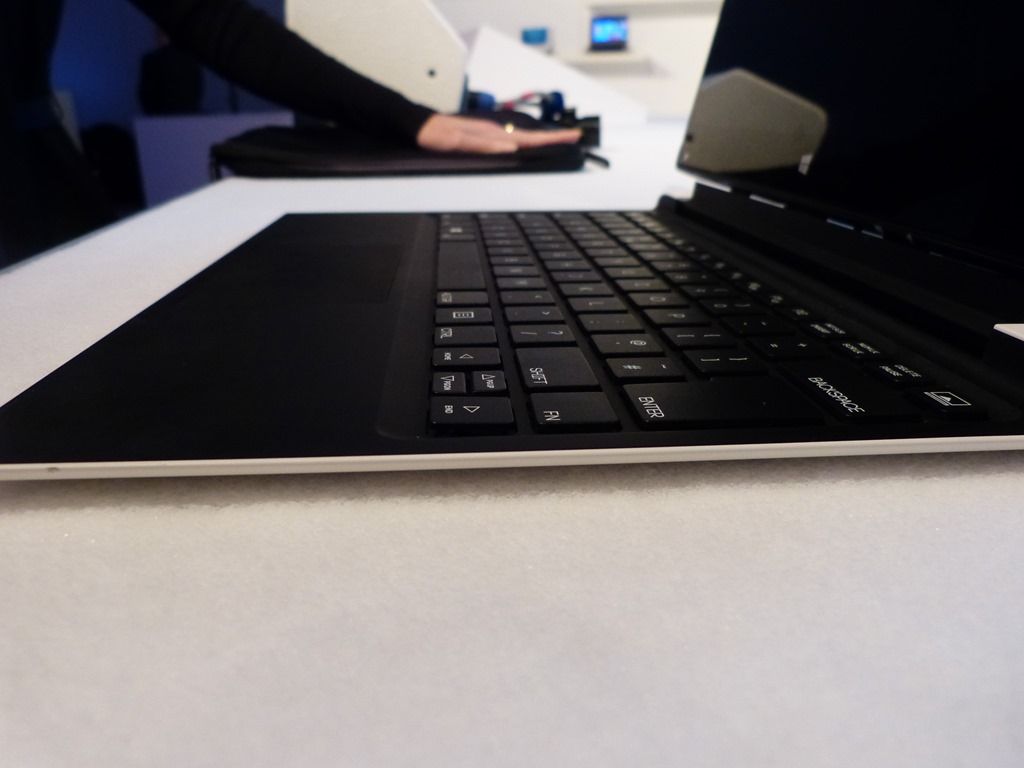
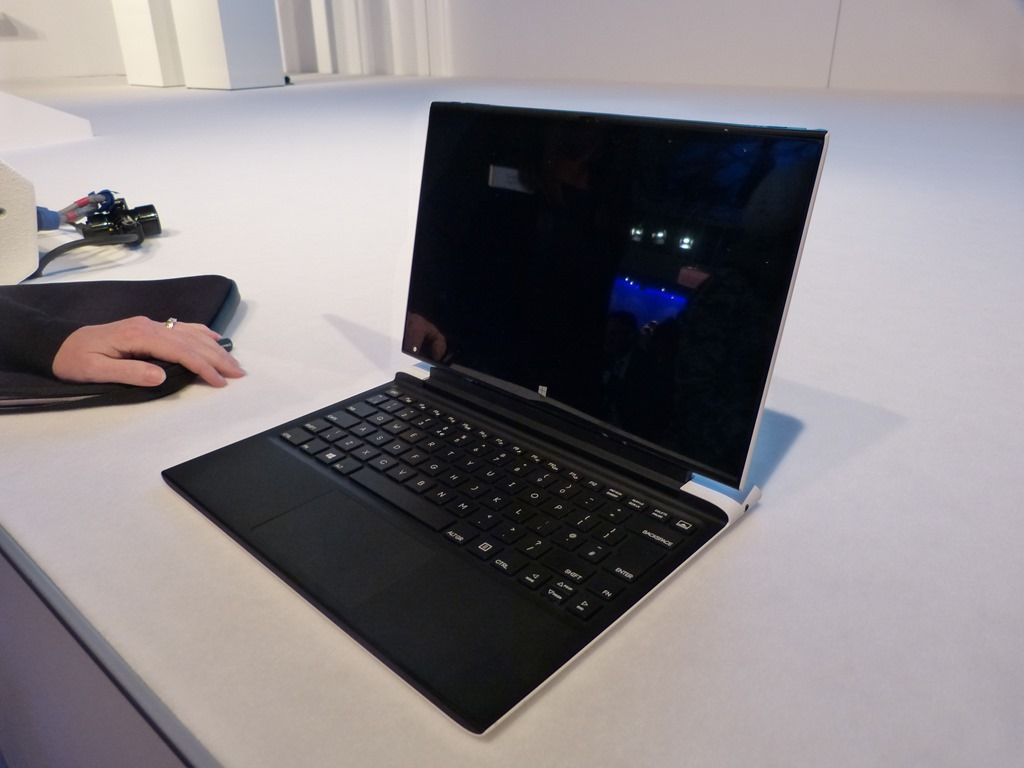











Certainly a great machine.
What I am wondering about is a bit theoretical:
– Marketing cycles get longer and longer organized rumors, pre-launch info, launch, etc. Such a machine for example will be widely available may be mid of next year.
– R&D and product lifecycles get shorter and shorter.
My feeling is that these two contradicting trends increase buy postponing, cause customers using one device for a longer time period and therefore decrease sales. Of course I understand that if your competitor does it, you have no too much choice.
That’s why Intel is being very secretive on Haswell. With Ivy Bridge, we saw preview in early March. With Haswell we probably won’t see it 2-3 weeks before launch(which is in June).
I’ve told various marketing people at Intel that at Ultrabooknews we expect Haswell to cause a sales drop already among people that are researching (i.e. knowledgable, early adopter types.)
Chip, was there someone provisioning you? You could have just dig into the computer information screen to see what it says of the hardware specs.
I spoke to a senior marketing person who told me what I would see was not going to really help. I checked that! No CPU numbers and what looked like a downclocked (cTDP down) system. I saw that it was CS capable but apart from that, there’s really not much to report. Sorry.
Watch out for news from IDF Beijing in April.
When known access points become in range while in Connected Standby, will Windows connect to them automatically?
At the moment i’m not 100% sure about this.
I have had it working. E.g. skype notifications work after moving between two hotspots while in CS mode but i’ve also seen it fail to do that. Thre’s no way to tell if a device is truly in CS mode from the outside becuase sometimes the DAM (desktop management software in CS PCs) can keep desktop running for a while. If the network mangement software is not part of the new Windows 8 subsystem, if might get halted by the DAM. In short – complex. I’ll be trying to get more info about this over time. Obviously built-in 3G would be a better option.
To connect to new known hotspot takes just a second after hitting the power button though.
How do USB WWAN modems work with Connected Standby?
I’m interested in this. It would be kind of annoying to have to hit the power button and make sure it connects to WiFi.
That’s all great, but how’s battery life? I guess Intel never handled a Haswell ultrabook to somebody to test for a few days. The biggest question on Haswell is probably how battery life will be.
Intel is saying that Haswell will bring a much improved battery life, but under which conditions? In a stress test, with apps demanding from the processor continuously, will Haswell still have a much better battery life than Ivy Bridge?